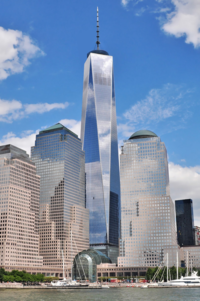Think of this as Volume 17, Number 51 of the newsletter I have written weekly since March, 1997. Enjoy.
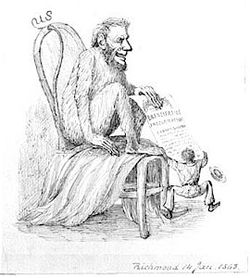
It happens just once in each generation. An existential crisis causes a rising generation to adopt new values, and causes some in the older generation to shift theirs. The result is to turn the old majority into a new minority, and vice versa. Until next time.
This has happened 5 times in modern American history. The Civil War. The Progressive Era. The Great Depression. The 1960s. Now, the Great Recession.
Presidents elected at a time of crisis have a unique opportunity. Success puts them at the forefront of great American Presidents. Failure doesn't change the history, it doesn't prevent the turn, but it passes that opportunity on to a successor.
Who are generally acknowledged to be our greatest Presidents?
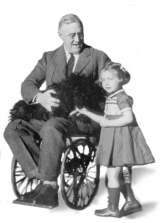
These last two were “consolidators” – they consolidated the new majority coalition, which was validated by their elections, and they set the tone for the generation of leaders who followed them. Only those who could tack against their wind, who could provide an anti-thesis to their thesis, would have a hope of being elected from the other side. Until the next crisis.
This year, 2013, will go down in history as the year the political winds truly shifted for our time, and that of our children. Barack Obama has led the way out of the crisis. The Great Recession has lifted. He has also given us the Affordable Care Act, the biggest change in public policy for a generation. That law is getting its first full implementation now.

What seems most likely, at this writing, is that Hillary Clinton will inherit that wind. It's ironic, because her husband was the great anti-thesis President of our time. Bill Clinton tacked into a stiff conservative wind, saying “yeah but” to the politics of his time. He won election and re-election with minority support, numbers almost identical to those of another anti-thesis Democrat, Woodrow Wilson. Bill faced into a stiff political wind in his face: his wife will have hers at her back.
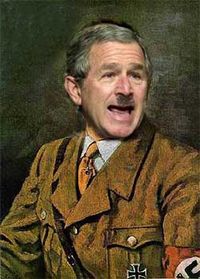
But I digress.
What has changed, what is changing, as 2013 becomes 2014, is that official Washington is becoming accustomed to the idea that the Democrats are the majority party and will remain the majority party for some time to come. Republicans are not yet reconciled to this, but the results of Virginia's elections struck much harder than they imagine. Democrats swept the statewide offices, using Obama's playbook of getting ethnic minorities, women and young people to the polls with Internet media and Internet technology.
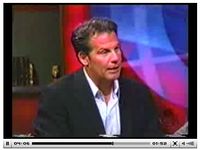
Following his lead, I call what's presently happening a second “urban explosion,” driven by the rising price of gasoline and rising commute times. The shift began in Atlanta after the 1996 Olympics, with the gentrification of intown neighborhoods like Kirkwood, where I live. It has only accelerated since the start of the Great Recession. Exurban counties like Paulding and Cherokee fell hardest, and for a change recovered later, than areas closer to town.
The result of all this is to displace the urban poor into suburban collar counties, with new ghettos rising just outside ring freeways and mass transit. Cities like Norcross and Austell have grown poorer, while Atlanta has opened up new neighborhoods like West Midtown, near Georgia Tech, to gentrification. The people moving into these places, regardless of the politics they left, know they need things government provides, roads and bridges and cops and schools. They see the value, they're willing to pay the price, even if that means they have to deal with smaller living spaces and smaller cars.
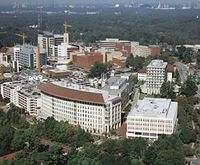
These are facts not in evidence to most economic planners. They're a new reality. They're as powerful a force as the rise of suburbs was in Nixon's time, as consumerism was in Franklin Roosevelt's time, as mass industrialization was for Theodore Roosevelt or as manufacturing itself was for Lincoln. During the crisis, these changes go about unseen. They're only obvious in the hindsight of history. And it's in the hindsight of history that crisis Presidents are acknowledged, only after they belong to the ages.
The losses suffered by the President this year, his falling popularity, his supposed political weakness, are as nothing to what was suffered in previous crises. By this point in their presidencies Lincoln and McKinley were dead. Nixon was on his way out. Even FDR had lost his glow, with economic growth slowing, with Germany and Japan rising, with a second recession on its way and war just around the corner.
Compared to all that, Barack Obama has been the luckiest President America has ever seen. This, I feel, has obscured his great success.
But political assumptions are starting to change. New analysts are replacing the old, steeped in the new assumptions of the new age. When they're proven to be right, as they will be, their power will supplant those of the older, conservative-era analysts they'll be replacing. The stories of our time will become the myths they tell our children, the values they teach will be the values of our time, and the power will follow. You can see this as an equation I learned from my first political science teacher, Gilbert Cuthbertson – MV=P. (You can also solve it for M and V.)
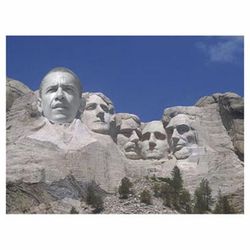
I believe that when our grandchildren write history, deep in this century, they will write that the Great American Presidents were Lincoln, Franklin Roosevelt, George Washington and Barack Hussein Obama. God bless the United States of America that it brings us such leaders, just when we need them.


